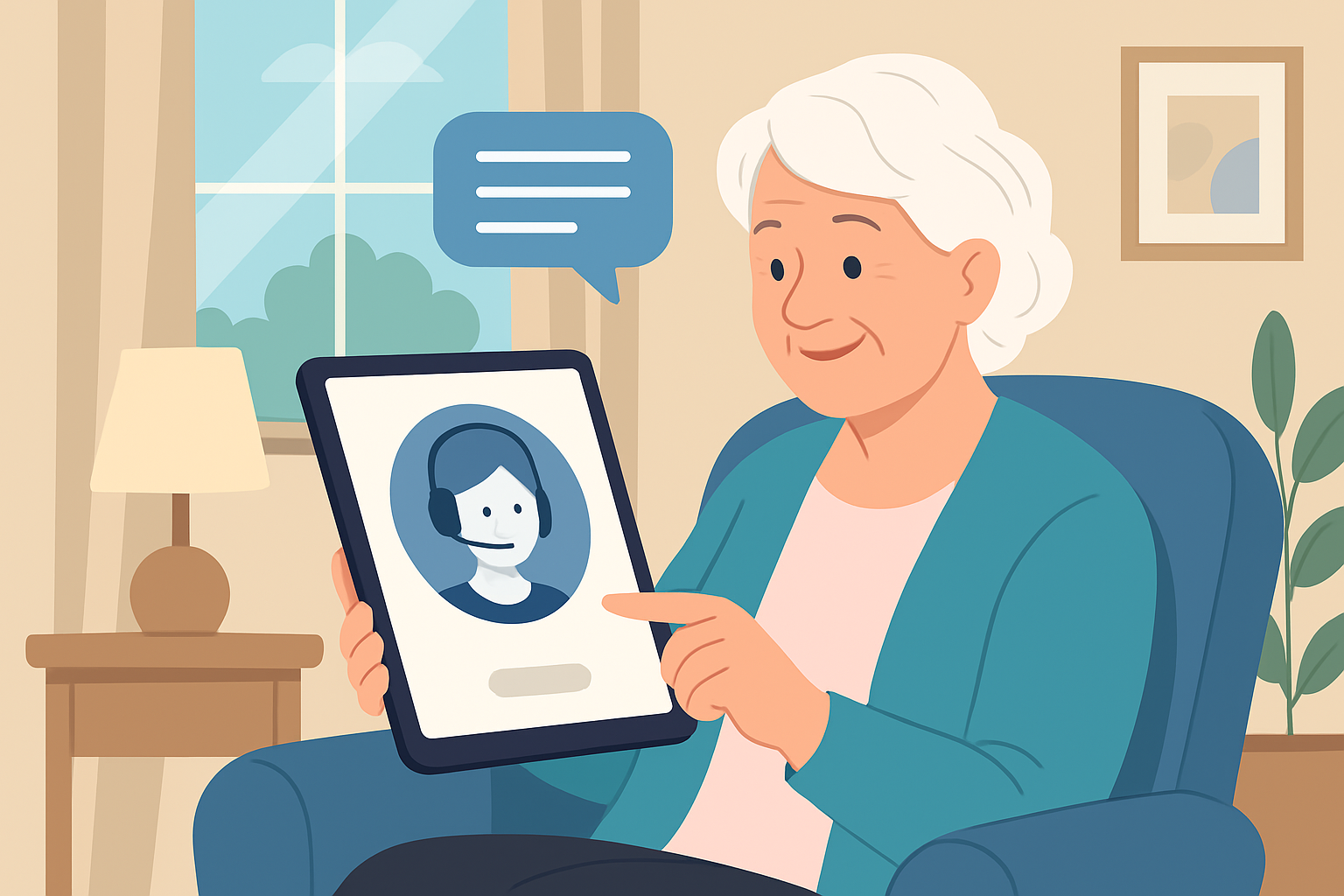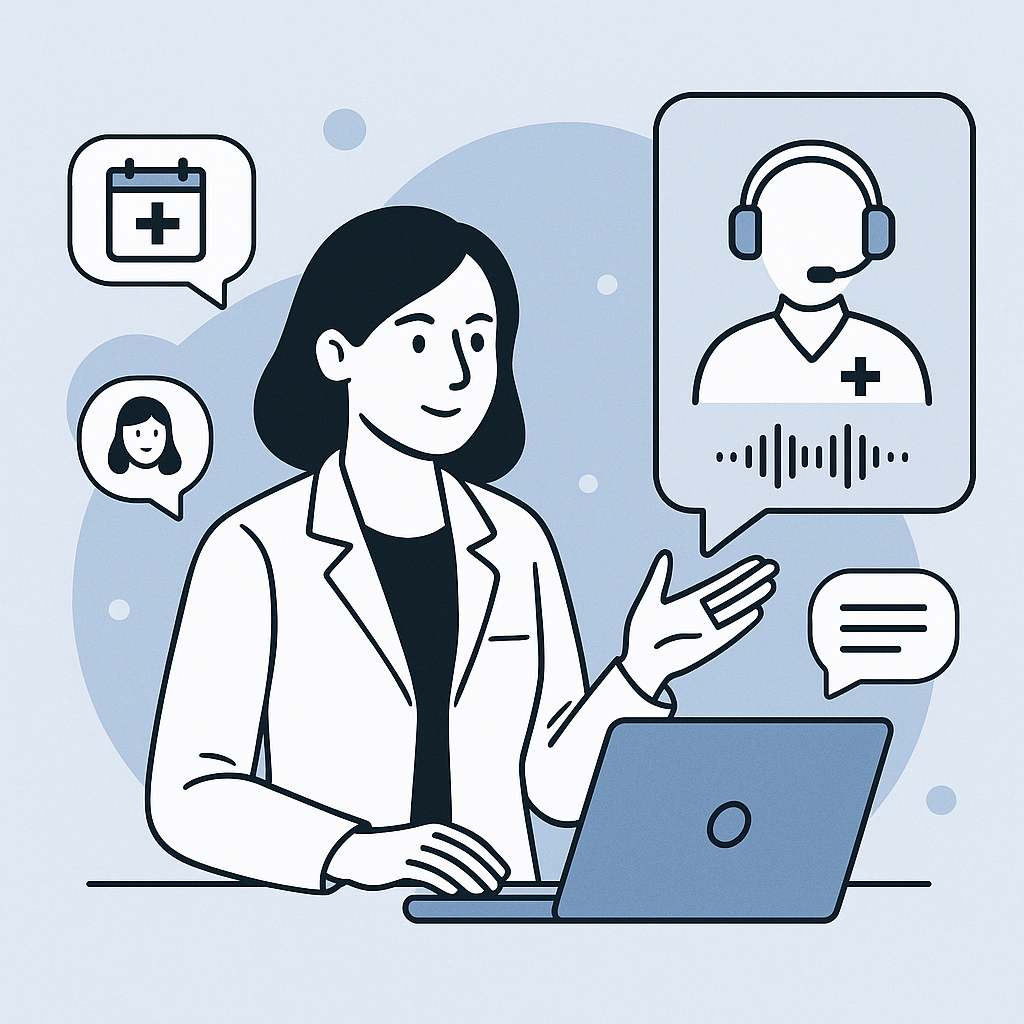Healthcare delivery is undergoing a fundamental transformation. What was once centralized in hospitals and clinics is now shifting toward home-based care, driven by an aging population, advances in medical technology, and the need for cost-effective treatment models.
According to the U.S. Census Bureau, by 2030, one in every five Americans will be over the age of 65. This demographic shift, combined with a rise in chronic diseases like diabetes, heart disease, and respiratory conditions, is placing unprecedented demand on healthcare systems. At the same time, patients increasingly prefer receiving care in the comfort of their homes, where they feel safer, more independent, and more in control of their health.
But home healthcare comes with its challenges:
- Coordination gaps between patients, families, and providers.
- High operational costs for agencies.
- Missed medications and appointments lead to readmissions.
- Limited availability of skilled caregivers, especially in rural areas.
This is where AI virtual assistants for home patient care step in, acting as 24/7 coordinators, communicators, and health monitors to bridge the gap between home and hospital. These AI-powered solutions automate scheduling, remind patients of medications, track vitals, and even escalate urgent cases to healthcare professionals in real time.
Market Insight: The global home healthcare market is projected to reach $340 billion by 2027 (Grand View Research), and AI integration will play a pivotal role in this growth.
Understanding AI Virtual Assistants in Home Patient Care
An AI virtual assistant for home healthcare is a software-driven solution, often equipped with natural language processing (NLP) and machine learning capabilities, that supports both patients and providers. It can:
- Communicate naturally with patients through voice or chat.
- Integrate with wearable devices to track health metrics like heart rate, oxygen levels, and blood pressure.
- Automate administrative tasks such as appointment booking and care reminders.
- Provide multilingual support for diverse patient populations.
Unlike traditional chatbots, healthcare-focused AI assistants are trained on medical-specific datasets and designed to comply with HIPAA, GDPR, and other healthcare privacy regulations.
Why Home Healthcare Needs AI Now More Than Ever?
The home healthcare sector is experiencing three major pressures:
1. Aging Population
By 2050, the number of people aged 60 and above will double globally, according to the World Health Organization. Many will require long-term care, but there’s already a shortage of caregivers. AI assistants can reduce administrative burdens on the existing workforce, freeing up time for direct patient care.
2. Chronic Disease Management
The Centers for Disease Control and Prevention (CDC) reports that 6 in 10 adults in the U.S. have a chronic disease. Managing these conditions often involves multiple medications, regular check-ins, and lifestyle adjustments — all of which can be supported by AI reminders and monitoring.
3. Rising Healthcare Costs
Home care reduces costs by minimizing hospital stays, but manual operations and unplanned readmissions still drain resources. AI can prevent many of these issues by ensuring proactive care management.
Key Features of AI Assistants for Home Patient Care
An effective AI virtual assistant for home healthcare should offer more than just a chat interface. Here are the core capabilities that make it indispensable:
1. Intelligent Appointment Scheduling
Patients and caregivers can schedule, reschedule, or cancel visits without waiting on hold. AI automatically finds the best available slots and syncs them with provider calendars.
2. Medication Management
Medication adherence is a major challenge in home care, WHO estimates 50% of patients with chronic diseases don’t take their medicines as prescribed. AI assistants send timely reminders, confirm intake, and alert caregivers if doses are missed.
3. Remote Health Monitoring
By integrating with wearable devices and IoT health tools, AI can track vital signs, analyze trends, and send alerts if abnormalities are detected. For example:
- Sudden drop in oxygen saturation for a COPD patient.
- Irregular heart rate for a cardiac patient.
4. Care Coordination
AI can serve as a central communication hub, connecting patients, families, visiting nurses, and physicians in real time to share updates and instructions.
5. Multilingual and Accessible Communication
For patients who speak different languages or have hearing/vision impairments, AI assistants can adapt communication for better accessibility.
Benefits Across the Home Healthcare Ecosystem
1. For Patients
- Greater Independence: Patients can manage their own care with AI guidance.
- Reduced Hospital Visits: Early detection and intervention reduce emergency admissions.
- Emotional Support: AI-powered conversations can help combat loneliness in elderly patients.
2. For Families
- Peace of Mind: Real-time health updates and alerts ensure families stay informed.
- Better Coordination: Easy communication with care teams without endless phone calls.
3. For Providers
- Efficiency Gains: Automating reminders, scheduling, and reporting frees up 30–40% of administrative time.
- Scalability: Manage more patients without increasing staff numbers.
- Improved Patient Satisfaction: Faster response times and personalized care raise ratings.
Case Study Insight: A trial in the UK showed that using AI-powered care coordination reduced missed home care visits by 30% and improved patient satisfaction scores by 25%.
Real-World Application: Voiceoc for Home Patient Care
While Voiceoc has made waves in dermatology clinics, its AI assistant technology is equally transformative for home healthcare:
- Automated Post-Discharge Follow-Ups: Checks on patient recovery progress and flags potential complications.
- Chronic Disease Monitoring: Sends daily check-in messages to patients with conditions like hypertension or diabetes.
- Visit Reminders & Rescheduling: Ensures home nurse visits happen on time, reducing last-minute cancellations.
- Family Communication: Provides relatives with regular updates, even if they live miles away.
By integrating with EHR systems, Voiceoc ensures that no data is lost between home and hospital, maintaining continuity of care.
Challenges & Considerations in Implementing AI in Home Care
While the potential is enormous, providers should consider:
- Data Privacy & Security: AI must comply with healthcare regulations like HIPAA.
- User Training: Elderly patients may require simple, voice-based interfaces instead of complex apps.
- Integration with Existing Systems: AI should work seamlessly with current scheduling and EHR tools.
- Ethical Concerns: AI must support human caregivers, not replace them entirely.
The Future of AI in Home Patient Care
Emerging trends indicate that AI assistants will evolve from being reactive tools to proactive health partners:
- Predictive Health Alerts: Identifying health risks before symptoms worsen.
- Personalized Care Plans: Tailored recommendations based on patient history and behavior.
- Integration with Telemedicine: AI will become the first point of triage before virtual doctor visits.
- Mental Health Monitoring: Detecting signs of depression or anxiety through speech analysis.
Forecast: By 2030, AI-powered home health solutions could save the U.S. healthcare system over $150 billion annually through reduced hospital readmissions and optimized care delivery.
Conclusion
The shift to home-based healthcare is here to stay, and AI virtual assistants for home patient care are the key to making it efficient, personalized, and sustainable. From scheduling to monitoring to emotional support, these systems ensure that patients receive high-quality care without leaving home.
For providers, adopting AI means lower costs, improved scalability, and happier patients. For patients and families, it means comfort, safety, and confidence in the care they receive.
With solutions like Voiceoc, the future of home healthcare is not just about staying at home, it’s about living better at home.




.webp)







